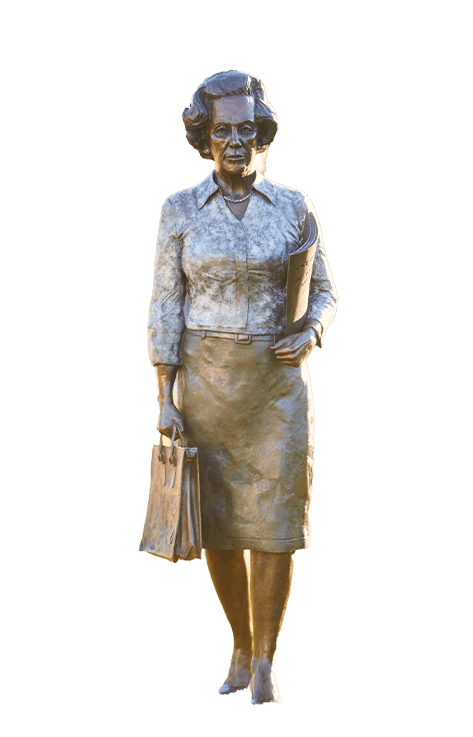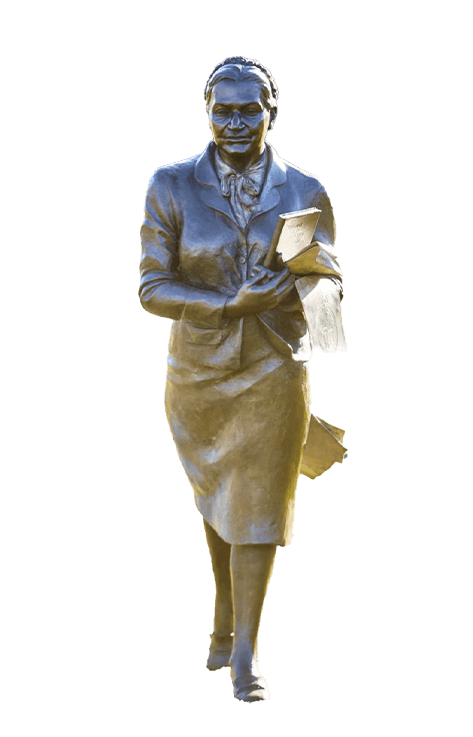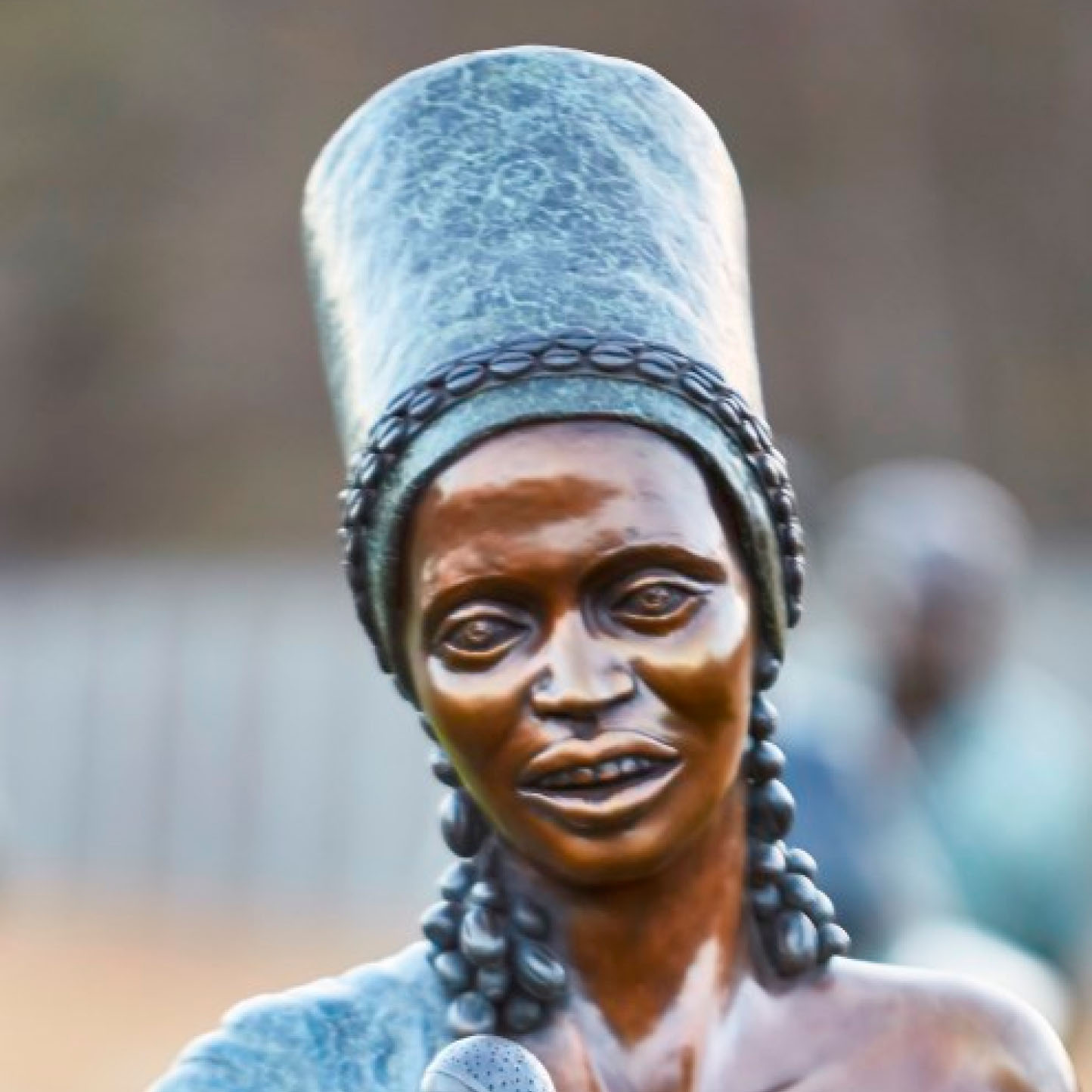
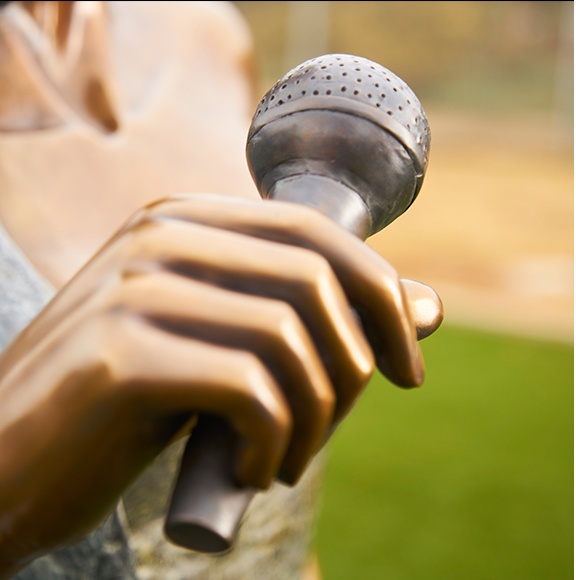
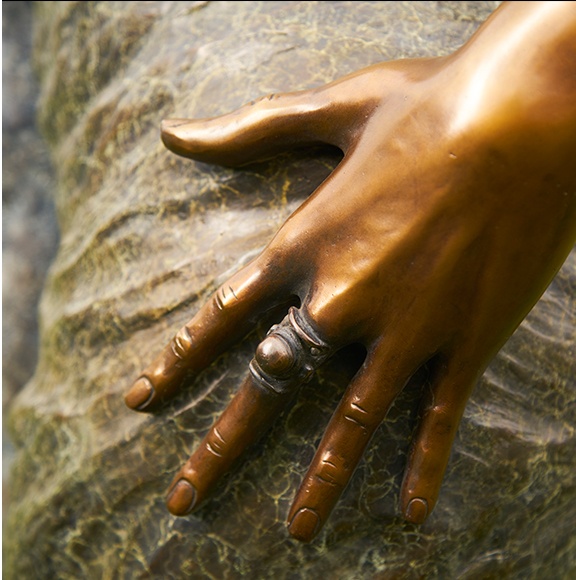
"I usually find when people pay to come and hear an entertainer they usually dont want to be reminded of the ugly things in this world. They get away to come and enjoy themselves and I usually feel I shouldnt hit them on the head with a hammer. So I always try to inject a little message here and there, subtly if I can, because not everybody feels the same way that I do."
Makeba describing her approach to incorporating protest songs in her performances during a live show at Bern’s Salonger, Stockholm, 3 February 1966
Miriam Makeba
1932 - 2008
Singer and Activist, Grammy award winner, United Nations (UN) Representative
Zenzile Miriam Makeba, popularly known as Mama Afrika, was a singer from Sophiatown in the 1950s who would later receive worldwide acclaim and recognition for her contribution to South African music and her fight against Apartheid and injustice in Africa.
Makeba was one of the first black musicians to leave South Africa in protest against Apartheid policies in 1959. Her testimony in 1964 at the United Nations against the racist regime saw her effectively banished for over thirty years from South Africa. Her appearance in the documentary Come Back Africa (1959) solidified her worldwide popularity. Although she was uncomfortable with the title activist singer, her activism undoubtedly influenced her music and is credited with spurring pro-Afro styling in her image and sound.
Makeba popularised African music for international audiences by collaborating with prominent musicians. Her popularity protected her when South African authorities took action against her public defiance against Apartheid and she found her passport and citizenship revoked when she returned to South Africa for her mothers funeral. She married Pan-Africanist Stokely Carmichael and relocated to Ghana where she served as Ghanas UN representative for 15 years before returning to South Africa in 1990.
Did You Know?
Makeba was the only musician to be personally invited to perform at the inauguration of the Organisation of African Unity, the precursor to the African Union, when she was requested by Haile Selassie in 1963 to sing for the launch.
